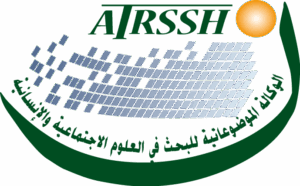The addictive phenomenon has become one of the major concerns of society and public power. These profound repercussions on Algerian society affecting public health, the economy, social relations, individual behaviours, as well as the constant evolution of addictive substances and behaviours challenge us to multiply the approaches of analysis and development of treatment and prevention systems. Through the six research areas proposed, there is a question of taking charge of this dossier through field surveys, case studies and operational proposals.
-
- Impact of addiction on public health:
Addiction has a significant impact on public health in Algeria, particularly with regard to diseases linked to the use of addictive substances. By focusing on this axis, we can assess addiction-related public health trends and propose measures to mitigate these impacts.
Operational objectives:
– Analyse epidemiological data on addiction in Algeria.
– Assess the health costs of addiction, including associated diseases.
– Propose prevention and intervention strategies to improve public health.
- Economic costs of addiction:
Addiction generates substantial economic costs for society, including health expenditures, productivity losses and social impacts. By looking at this axis, we can quantify these costs and explore approaches to reduce them.
Operational objectives:
– Assess the direct and indirect costs of addiction in Algeria.
– Analyse the impact on the national economy and local communities.
– Propose strategies to reduce the economic costs of addiction.
- Social consequences of addiction:
Addiction can have devastating social consequences, such as family disintegration, crime and stigma. By looking at this axis, we can explore the social impacts of addiction and develop interventions to mitigate these effects.
Operational objectives:
– Study the effects of addiction on family and social relations.
– Analyse the correlation between addiction and crime.
– Propose rehabilitation and social reintegration programmes.
- Addiction-related human behaviour:
Understanding the psychological and behavioural factors associated with addiction is essential to developing effective interventions. By looking at this axis, we can deepen our knowledge of the motivations and mechanisms underlying addiction.
Operational objectives:
– Analyse the motivations and triggers of addictive behaviour in Algeria.
– Examine the neurological mechanisms involved in addiction.
– Propose interventions based on understanding addictive behaviour.
- Improved treatment and prevention:
Treatment and prevention of addiction play an essential role in reducing the impact of this problem. By focusing on this area, we can assess the effectiveness of existing programmes and propose improvements.
Operational objectives:
– Evaluate the effectiveness of addiction treatment programmes in Algeria.
– Explore new approaches to prevention and treatment.
– Propose recommendations to improve access to care and rehabilitation programmes.
- Substance change and addictive behaviour:
Addictive substances and behaviours are constantly changing, creating new challenges for society. By looking at this axis, we can examine emerging trends in addiction and develop strategies to address them.
Operational objectives:
– Identify emerging addictive substances or behaviours in Algeria.
– Analyse the risk factors associated with these new trends.
– Propose prevention and intervention approaches specific to these developments


